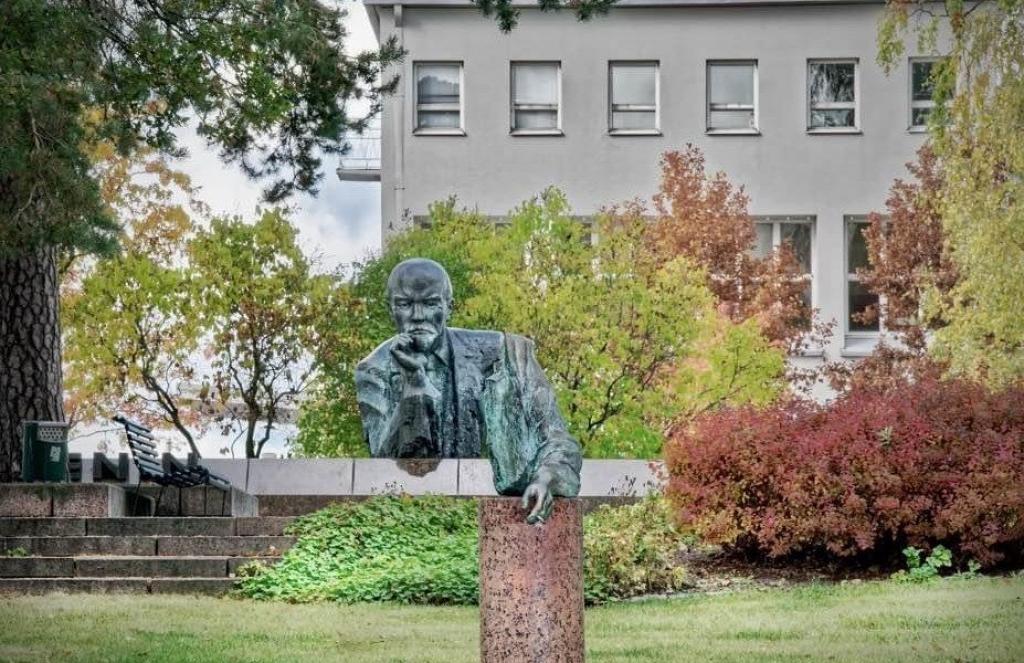Thessaloniki gets ready for its metro launch in November
The underground rapid transit lines have been under construction for almost two decades due to various project delays
 TheMayor.EU logo
TheMayor.EU logo 
Lenin's statue in Kotka was the last remaining one in a Finnish public space, Source: Kotka Municipality
And if you’re wondering why it was there in the first place – it was a gift from the Estonian capital Tallinn
The City of Kotka removed its statue of Lenin yesterday, 4 October, thus making Finland free of any Soviet statues. Opposition to its public display became mounting after the Russian invasion of Ukraine in February and so in June the local city council voted to have it taken away.
A group of construction workers in Kotka, a port city of 52,000 not far from the border with Russia, hoisted the statue into a truck and drove it away to a warehouse of a local museum.
The statue of Vladimir Lenin, sculpted as being deep in thought, was located in a central Kotka park adjacent to a wooden house where the Bolshevik party founder who became the Soviet Union’s first premier is said to have stayed.
Although Finland has never been part of the Soviet Union, its territory has played some part in the history of that state. Lenin and the Bolshevik leadership recognized the Nordic’s country independence on the last day of 1917. Ahead of the Russian Revolution, Lenin was exiled to Finland on several occasions, living in various cities and towns across the southern part of the country.
Later on, during the Second World War, Stalin did try to take over Finland with an ill-planned invasion in 1940, which saw the Red Army being bogged down by the brutal Northern winter, something that gave an advantage to the Finnish guerilla fighters. Some have drawn parallels between that war and the current one in Ukraine.
As for the statue itself, it was the work of Estonian sculptor Matti Varik. It was then gifted by the City of Tallinn to Kotka as a token of friendship in 1979. Finland did maintain neutrality during the Cold War and thus tried not to aggravate its Eastern neighbour, but the days of said neutrality seem to be numbered.
Lenin’s sculpture survived on the Kotka public square, not because of some ideological commitment on part of the local residents but because it was seen as a display item in the art collection of the local museum.
In fact, this is where the statue is headed – to the museum’s warehouse. Kirsi Niku, director of the Kymenlaakso Museum, said the museum's opinion is that the statue could well have remained in its original location.
"Even if this generation doesn't see it, future generations will certainly be interested in it. It is history in its own time," Niku told Yle news agency.

The underground rapid transit lines have been under construction for almost two decades due to various project delays

Now you can get your wine in Talence by paying directly in Bitcoin

That’s because the state has to spend money on updating the railway infrastructure rather than subsidizing the cost of the popular pass

Rethinking renewable energy sources for the urban landscape

The examples, compiled by Beyond Fossil Fuels, can inform and inspire communities and entrepreneurs that still feel trepidation at the prospect of energy transition

Now you can get your wine in Talence by paying directly in Bitcoin

The 10th European Conference on Sustainable Cities and Towns (ESCT) sets the stage for stronger cooperation between the EU, national and local level to fast track Europe's transition to climate neutrality.

At least, that’s the promise made by the mayor of Paris, Anne Hidalgo

The underground rapid transit lines have been under construction for almost two decades due to various project delays

At least, that’s the promise made by the mayor of Paris, Anne Hidalgo

Hostal de Pinós is located in the geographical centre of the autonomous region

Despite its church-y name, the district has long been known as the hangout spot for the artsy crowds

Urban dwellers across the EU are having a say in making their surroundings friendlier to people and the environment.

Forests in the EU can help green the European construction industry and bolster a continent-wide push for architectural improvements.

Apply by 10 November and do your part for the transformation of European public spaces

An interview with the Mayor of a Polish city that seeks to reinvent itself

An interview with the newly elected ICLEI President and Mayor of Malmö

A conversation with the Mayor of Lisbon about the spirit and dimensions of innovation present in the Portuguese capital














